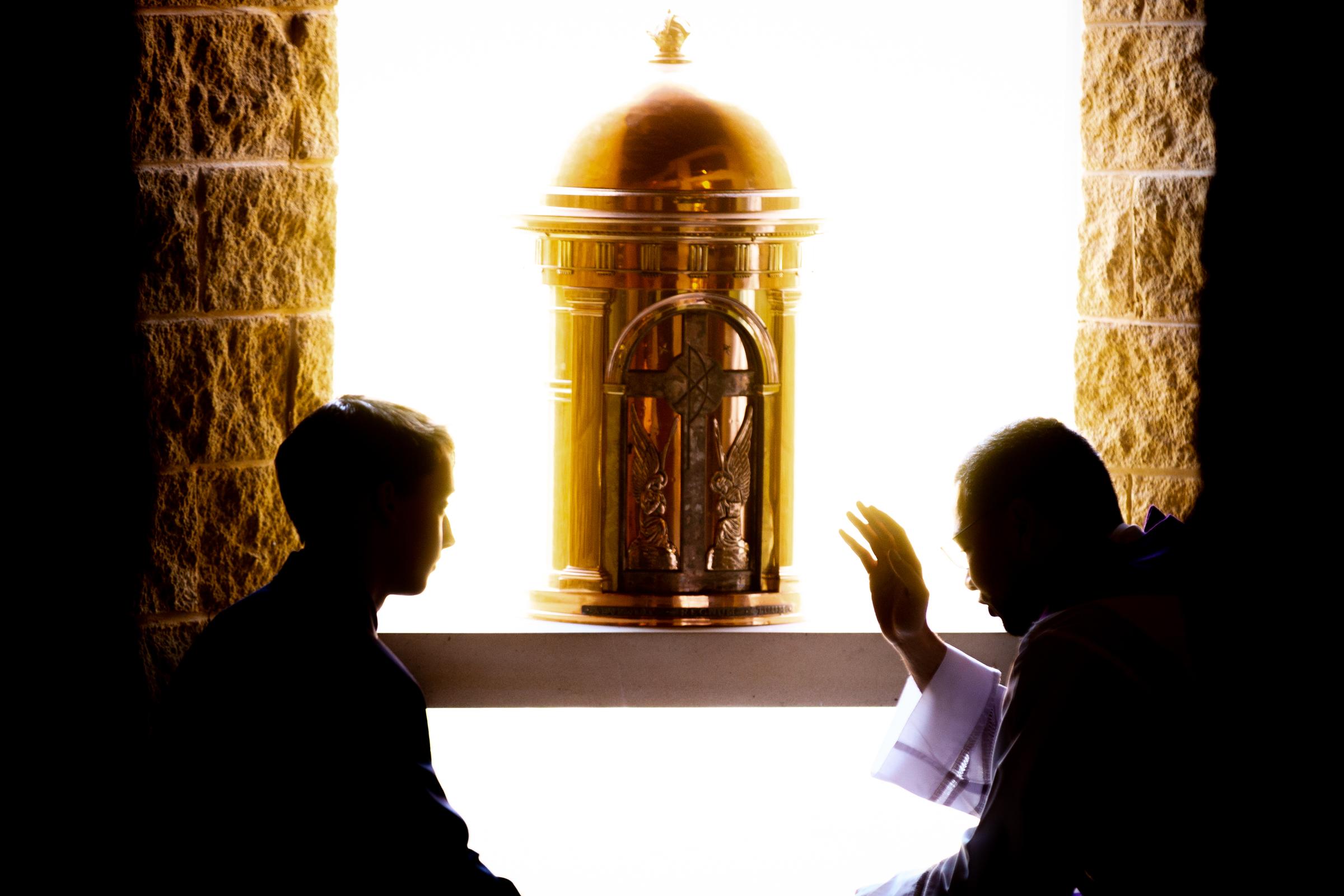Liturgy

Community Mass
Friday mornings at 7:50am the sound of the Chapel Bell rings out across the John XXIII College campus. Bell-ringing is an ancient symbol for calling people to a time of prayer. Our weekly Eucharistic prayer is an important and joyful aspect of College community.
Next Friday, 21 October, the Eucharist will be prepared by student in Year 8. All families are welcome – not only families of Year 8. For those able to stay for a while after Mass, there is coffee and conversation in the Circle of Friends Café.
Community Mass details
- College Chapel
- Fridays in term time
- Starts: 8:00am and concludes 8:30am
Good News for the feast of Pope Saint John XXIII
John XXIII Day at the College celebrates all our founders. However the Church officially
celebrates the Feast of Pope Saint John XXIII on 11 October, the date of the opening of the Second Vatican Council. Vatican II began sixty years again, in 1962.
Jesuit Father Andrew Hamilton gives us this reflection on the legacy of
Pope Saint John XXIII.
Pope John XXIII is remembered with great affection in Italy, his homeland. He is also honoured as the face of an attractive Church – human rather than ascetic, outward-looking rather than introspective, at home with the modern world rather than dismayed, pastoral rather than theological, encouraging rather than forbidding, simple rather than complicated. The contrast between him and the preceding Popes and Church that they represented, of course, are over-dramatised. He was more traditional and organised than his popular representation suggests. And his predecessors were more varied and worldly wise.
The popular image of Pope John XXIII rightly emphasises public surprise at his election as Pope. He was in his late 70’s. Unlike many previous Popes, too, he did not come from a noble family but was one of several children of sharecroppers who lived simply. Even those who knew him well, however, were surprised when he called the Second Vatican Council. Many church officials in Rome rightly saw it as disturbing. He intended it to be so, and encouraged the Bishops at the Council who wished to move beyond the anodyne documents that the Vatican officials had prepared for them. The changes in the life of the Church and the theological emphases in reflection on liturgy, the Church and its place in the modern world, and the positive importance of other Churches and religions did disturb Church life in ways that we have inherited and are still working at.
Popular wisdom attributes these changes to an elderly Pope who came out of nowhere to be elected, and who was chosen to keep the seat warm for his successor. That picture, accurate though it may be in naming how he was seen by some of the Cardinals who elected him, does not do John XXIII justice. He did not come out of nowhere. He had wide experience in the Papal Diplomatic Service in difficult positions, such as the head of the Vatican Jewish Agency and as Nuncio in Bulgaria and Turkey in Eastern Europe during the Second World War. He had also enjoyed the confidence of Pope Pius XII who had made him Archbishop of Venice and Cardinal.
His work both in the Balkans and Turkey, too, was testing and he acted with great courage in helping protect Jews from being sent to extermination camps, in encouraging good relationships between Muslims and Christians and also between Christian Churches. His appointment as Nuncio in France at the end of the War when the Church was also affected by conflict between the French who had collaborated with the Nazis and those who had resisted was a testimony to his ability to respond to crises and to people caught in them. The people who met him not only respected but liked him.
If indeed the Cardinals who elected him Pope expected that he would leave the Church unchanged, they misread him. Not simply through the Vatican Council but through his own initiatives he prepared the way for a more simple and collegial papacy, encouraged friendly relationships with other churches and religions, and opened close doors between the Catholic Church and he modern world. In all of this he showed a deep faith held with the tenacity attributed to Italian peasants. More important he allowed people to see in the Church the face of the poor and trusting Jesus.
© Andrew Hamilton
